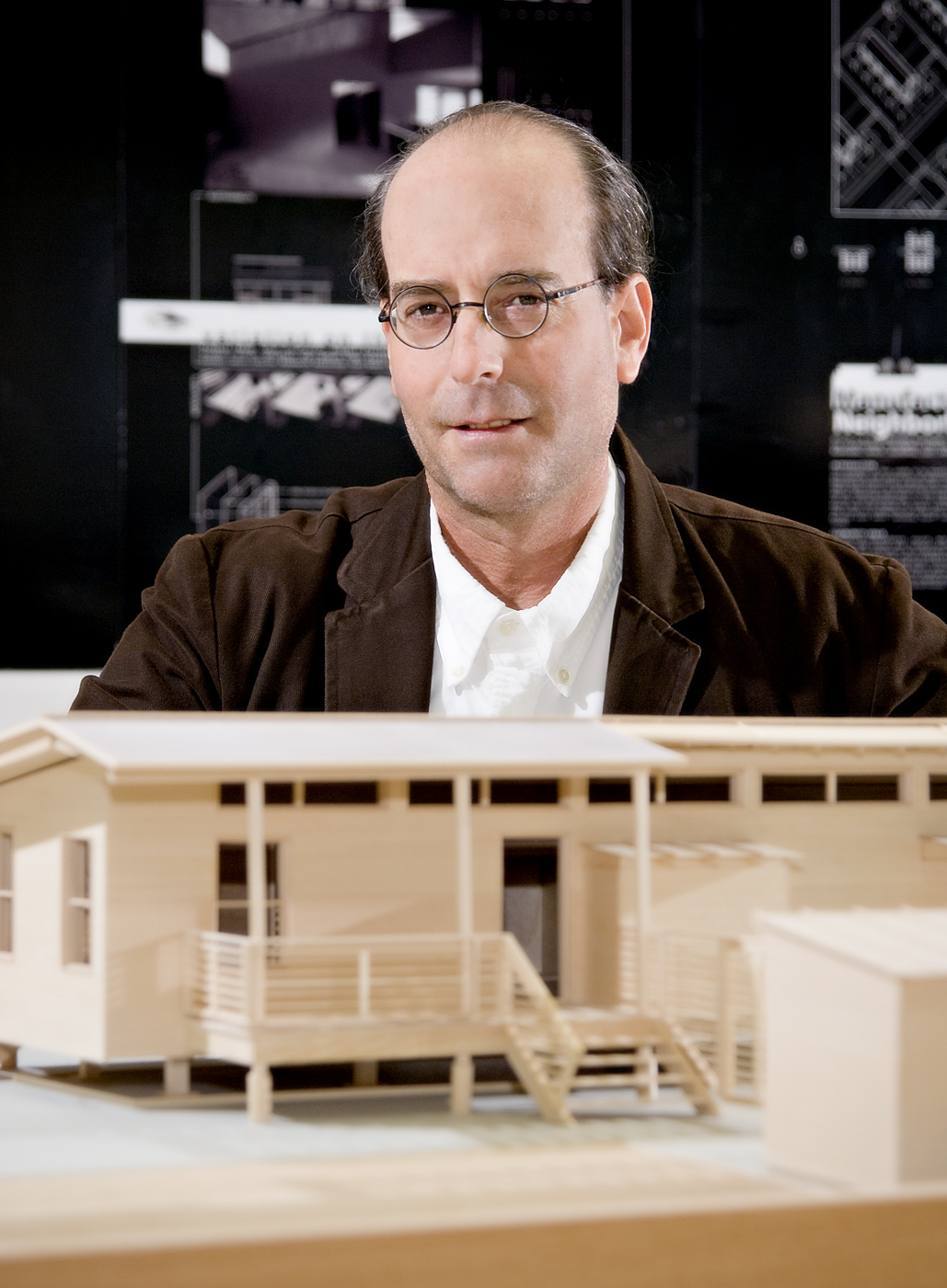Contact: Robbie Ward

STARKVILLE, Miss.--When someone mentions a mobile home or "house trailer," the image usually doesn't make others green with envy. Mobile homes haven't earned recognition for long-term quality, environmental friendliness or return on value.
But "green" is exactly what Michael Berk, F.L. Crane Endowed Professor of Architecture at Mississippi State, wants mobile homes to be. He hopes to toss traditional thinking about the structures into the recycling bin, salvaging the traditional "mobile home" perception one national award at a time.
Working in the Carl Small Town Center--a part of MSU's College of Architecture, Art and Design--Berk created an award-winning, next-generation factory-built unit he calls the GreenMobile. Unlike other lower-end housing, Berk's applies sound construction methods, as well as energy-saving concepts for lower utility costs.
The GreenMobile design meets International Residential Codes for structurally sound foundations, involves using better insulation, promotes the use of energy-efficient appliances, and creates interior spaces better suited for natural-day lighting and ventilation.
It also includes an option to install Tennessee Valley Authority solar photo-voltaic systems, which convert energy from the sun into electricity--an option known in the industry as net-metering.
Energy savings from the home make it a smart choice for people looking for affordable housing and lower utility costs. "It potentially could make money at the end of the month," Berk said.
Energy isn't the only thing separating the GreenMobile from traditional mobile homes. Berk said his next generation of mobile home will appreciate in value, unlike current mobile homes that depreciate shortly after being bought.
Given the potential to accrue value and the fact that they're designed to last longer than traditional mobile homes, GreenMobiles could be financed through low-interest loans from lending institutions such as the U.S. Department of Agriculture. They're expected to cost in the $50,000 range.
"Lenders have indicated they would consider 35- to 40-year mortgages," Berk said. "That means someone who in the past could afford only a single-wide trailer with a 15-year chattel mortgage would pay less money per month to own a really well-built product that will increase in value in the future."
When Berk completed the concept for the GreenMobile about five years ago, he designed it with the Mississippi Delta in mind, including attached decks and porches to expand outdoor living. Subsequent hurricane devastation in south Mississippi created a new use for the GreenMobile--an adaptable mobile unit for disaster relief housing.
Last December, GreenMobile was awarded a $5.8 million grant as part of the Federal Emergency Management Agency's Alternative Housing Pilot Program, organized to construct alternatives to FEMA trailers in disaster-affected communities.
Berk is working closely with the Mississippi Emergency Agency as a design adviser to modify the original GreenMobile concept and produce stripped-down versions under the name EcoCottage for Mississippi Gulf Coast residents. A prototype is expected to be completed in March, with about 80 units forthcoming.
The design shows how the GreenMobile can function as viable long-term housing or as short-term disaster housing. Berk's concept recently earned first-place honors at the U.S. Environmental Protection Agency's inaugural Lifecycle Building Challenge competition, gaining distinction in the unbuilt housing category. GreenMobile also has been featured in magazines and at a host of architecture conferences.
While GreenMobiles can be built for any region of the United States, Berk said the structure's long, narrow shape is optimal for the Southern region. If the manufactured home is set so the long side faces north and south, prevailing winds pass south, making ventilation easier and more efficient.
While the new model for manufactured housing has been recognized with awards, industry hasn't yet picked up on it. Working with MSU's Office of Technology Commercialization, Berk seeks a company to partner on the project to mass-produce the GreenMobile, making the award-winning unit a new housing choice.
"It's waiting to go to the marketplace," Berk said.
For more information, contact Chase Kasper, the Office of Technology Commercialization, at 662-325-1939; e-mail ckasper@otc.msstate.edu. See Prof. Berk's Web site at www.caad.msstate.edu/mberk.
For more information about Mississippi State University, see http://www.msstate.edu/.